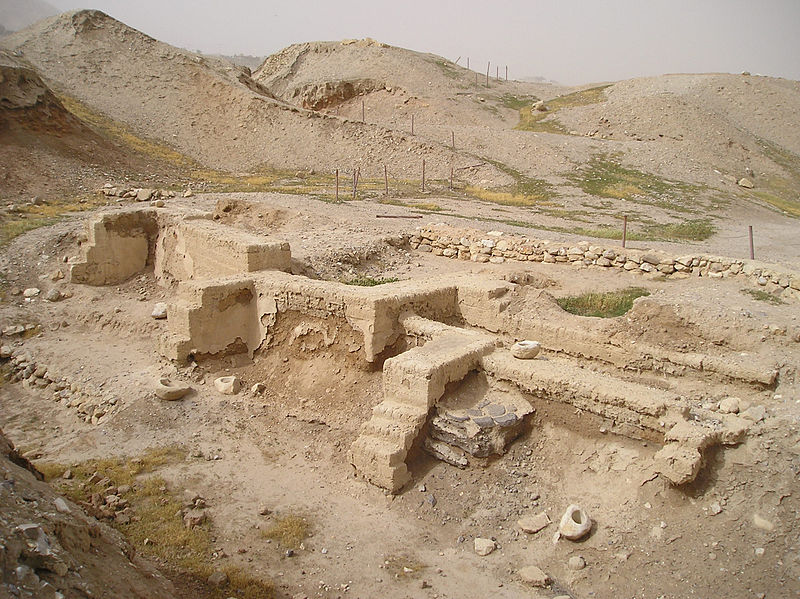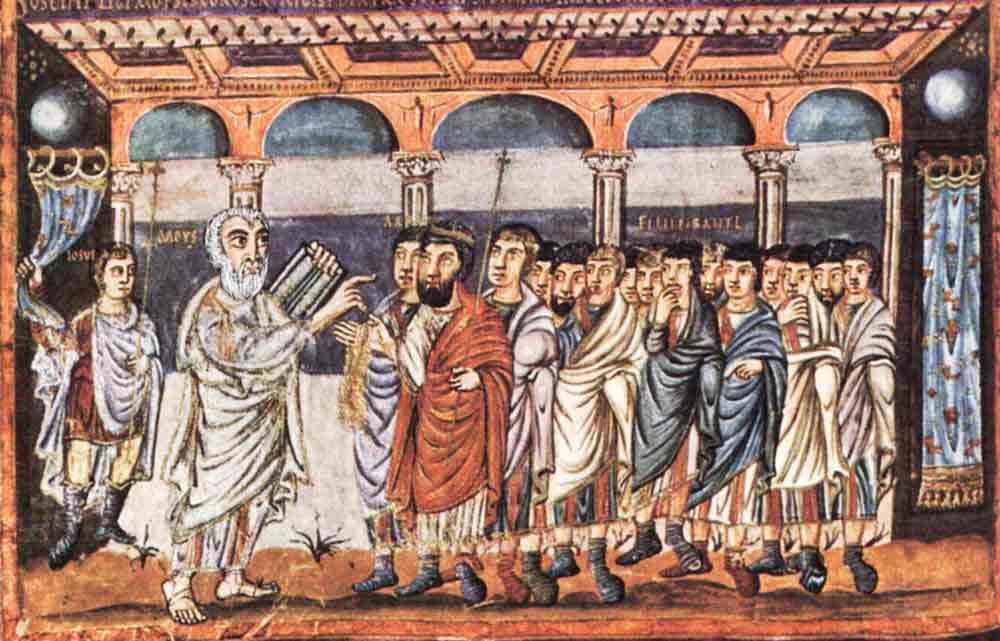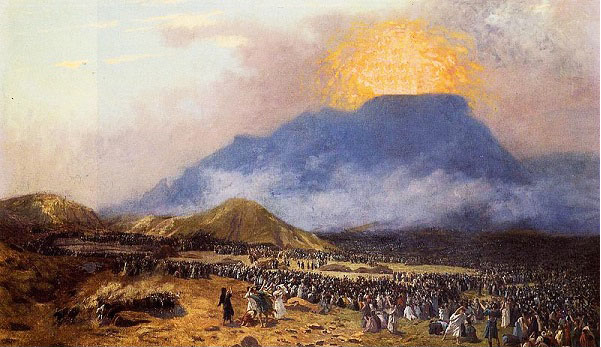
Having emerged victorious over 31 kings and having conquered thus, a sizeable part of Canaan, Joshua allocated the land to the ‘Twelve Tribes of Israel’. The moment the Israelites set foot in the land of Canaan, Joshua shifted the ‘Tabernacle’ from Gilgal to Shiloh, which was a centrally located city. The Tabernacle had always occupied a place of reverence in the minds of the Jews. Thus shifting it to the city of Shiloh made the city a place of pilgrimage for all the Jews of the time, at least as long as it housed the Tabernacle.
The Jews had indeed migrated to a land that was rightfully theirs and they were gradually settling in that land. Yet the fact remained that they had not quite been able to come together as one single society, one single nation, and that was a regret that Joshua nursed. ‘One God’, the ‘Sabbath’, the ‘Passover’, the ‘Ten Commandments’, the ‘Torah’, and of course the ‘Tabernacle’ were the things that the Jews revered and sincerely observed and these were the very things which bound all of them together. In addition to these, they also had an illustrious and towering central leadership in the form of Joshua. Moreover, the awe that he inspired in the Israelites ensured a disciplined execution of duties from them.
And so the years passed by. Joshua, who was 82 when the responsibility of leading the Jews to the land of Canaan first fell on his shoulders, was now well past 100!
In the meantime, the Jews who had immigrated to Canaan, their Promised Land, began to settle down there. Several Jewish settlements came about in various parts of Canaan. The archaeological findings over the last few years shed light on the lifestyle of the times.
The Jewish villages established themselves not only on the plateaus and plains but also along the slopes of hills. These villages were small with a population of not more than about four hundred. They were based on the ‘joint family’ system and related families lived close to one another or in close vicinity. For instance, when the son of a family married and went on to have his own family he lived in a house built for him next to the parental house. However, one of the sons of the family would invariably live with the parents in the parental home. The houses were generally positioned such that they stood close to one another around a common central courtyard on the inside. A boundary wall or a fence running around the outside of such houses demarcated the cluster of homes belonging to one family. The foundation of the houses would be strong and built of stone whereas the structure that stood on it was made of bricks. Pillars would form a prominent feature of these houses having four or five rooms earning them the appellation of “Pillar Homes’. At times, these houses had a one-storey structure in addition to the ground floor; the first floor generally being made of wood and supported by pillars. The ground floor would also have the facilities to house flocks, especially sheep. A water tank or a well was a common feature in the courtyard. Moreover, every house had a clay oven to bake bread and other foodstuffs. Many such clusters of family houses formed a village.

As these villages were built only for convenience of the Jews, their boundaries were open and were not distinctly demarcated.
Though the Jews had traditionally practised the professions of animal husbandry and livestock farming they gradually took to agriculture. The Israelites began developing this occupation and even progressed on this front namely by putting together the best that they picked from among the Egyptian and the Canaanite agricultural techniques.
The progress of the Israelites did of course please Joshua, now a centenarian; but ‘after him, what would become of them’, was a thought that worried him all the same. He feared that mingling with the Canaanites who had stayed back accepting the sovereignty of the Israelites, might lead the latter to imbibe customs and traditions contrary to the original Jewish beliefs. Besides, he was of the opinion that in order to keep a check on deeds that could be against Jewish religious principles, be the deeds inadvertent, the Israelites ought to harbour the firm conviction that they were special people of God whom God had chosen for a special cause. Joshua earnestly felt that the Jews would never feel the need for a central leadership should they follow the ‘Ten Commandments’, the ‘Torah’ in both letter and spirit and with devotion to begin with and if, recognizing their responsibilities, they deal and interact with their Jewish brethren with amity and unity. With this intention at heart he directed his efforts towards this purpose.
Joshua had crossed the age of hundred and so realizing that he had not much time left, he summoned all the Israelites to the Shechem. At the gathering, starting from the vision that God gave their patriarch Abraham, he affectionately narrated the entire history of the Israelites right upto the day they were in. He then earnestly but directly questioned them – ‘Now that you heard your glorious history, every Israelite among you who is a part of this magnificent tradition and heritage, has to take a decision: Do you wish to follow the Israelite religious beliefs and tenets, worship and revere the God Who appeared before Abraham-Isaac-Jacob through visions, follow His commands or would you rather follow the polytheism that the other people in the region practice?’

Each and every Israelite was moved by Joshua’s address, which he had rendered in earnestness and from his heart. The Jews of the young generation got to hear the vivid and detailed account of their history for the very first time. Hence they all replied in one voice to the question that was posed to them by Joshua. ‘Yes, we will rigorously follow the religion of Israel’, ‘We will never worship gods other than the ‘One God’’, ‘We will never disobey beliefs and tenets of the religion of Israel’ were the words that echoed in the place of the gathering.
This gathering which Joshua had summoned had yielded the desired results and the Israelites were committed to following all the beliefs and tenets of the religion of Israel.
Assured and contented, Joshua departed from this world a mere two years later. He was 110 then.
Joshua no more, the Israelites were now without any central leadership!
(To be continued…)












